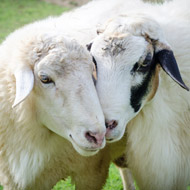
Startect Dual Active Oral Solution changed from POM-V to POM-VPS
The Veterinary Medicines Directorate (VMD) has agreed to a request from Zoetis UK Limited to change the legal distribution category of Startect Dual Active Oral Solution for sheep.
The anthelmintic, which is authorised for the treatment and control of mixed gastro-intestinal nematode infections and associated diseases, has been changed from POM-V to POM-VPS. This means that pharmacists and suitably qualified persons, as well as vets, are now legally able to prescribe it.
In a press release, the BVA and the Sheep Veterinary Society voiced concern over the move. BVA junior vice president John Fishwick said:
"We know that resistance to anthelmintics is increasing in grazing animals worldwide and needs to be addressed to avoid a potentially disastrous situation of being unable to tackle parasites.
“The reclassification of Startect Dual Active from POM-V to POM-VPS is in direct opposition to the trend in Europe, where we are seeing increased control over dispensing of anthelmintics in species where resistance is posing a serious threat to animal health, welfare and profitable production; we're extremely concerned that we might start seeing resistance develop in Group 4 as a result.
“BVA believes that the prescribing of anthelmintics requires a level of control best provided by a veterinary surgeon who has the animals under his/her care, and is based on a sound clinical diagnosis. The drugs are best used as part of a flock health plan drawn up by farmers in conjunction with their vet in order to protect animal health and welfare and safeguard the efficacy of these products for the future."
Kathryn Dun, president of the Sheep Veterinary Society, added: “Group 4 anthelmintics should be used only as part of a careful designed strategy for the individual farm and it is imperative that this strategy is worked out with a vet and is part of a flock health plan for that farm. The products need to be used, in the correct way, to help prolong the life of our other anthelmintics.
“We are unlikely to have any further new groups of anthelmintics in the foreseeable future, so education of those buying and selling these products is crucial to ensure the longevity of the effective action of them against sheep parasites.”



 The Federation of Independent Veterinary Practices (FIVP) has announced a third season of its podcast, Practice Matters.
The Federation of Independent Veterinary Practices (FIVP) has announced a third season of its podcast, Practice Matters.